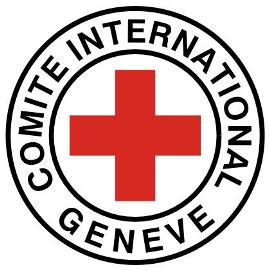South Sudan’s humanitarian situations alarming: ICRC
By Julius N. Uma
July 27, 2010 (JUBA) — Humanitarian situations in South Sudan remain worrying due to increased cases of politically-motivated violence and inter-communal clashes, resulting into the displacement large numbers of civilians, the International Committee of the Red Cross (ICRC) has revealed.
 In a detailed overview of its regional activities spanning from March to June 2010, ICRC cited Central and South Sudan, where tensions are allegedly slowly building in the run-up to next year’s referendum.
In a detailed overview of its regional activities spanning from March to June 2010, ICRC cited Central and South Sudan, where tensions are allegedly slowly building in the run-up to next year’s referendum.
Also mentioned are the increasing clashes between different groups in the oil-rich Abyei area in South Kordofan state. These have reportedly increased in recent months, already raising fears of more violence to come.
According to ICRC, the population in the semi-autonomous region have become vulnerably as a result of indiscriminate attacks attributed to the Lord’s Resistance Army in regions bordering Western Equatoria state, all of which have affected food production.
“Due to the lack of security, agricultural production in this former bread-basket of South Sudan has significantly decreased. The situation is compounded by the effects of two years of poor rains, and this led to significant food insecurity among the population in South Sudan in the first half of the year,” the ICRC overview statement partly reads.
However, to address this worrying insecurity trends, the organization is reportedly stepping up its activities and presence in Central and South Sudan.
CLEAN WATER PROVISION
In Akobo Country, where nearly 20,000 people displaced following last year’s violent tribal clashes in Jonglei state, ICRC is improving access to clean water among communities.
Such similar services are also being extended to Pibor County, where majority of the population reportedly live in deplorable conditions, characterized by complete water scarcity.
ICRC has, since March, completed the drilling of six new boreholes, all equipped with a solar pumping system capable of supplying 50 cubic metres of water every day.
Initially, construction work was slowed down due to the absence of materials such as gravel, sand and cement, which had to be imported from Kosti, about 675 kilometres to the north of Akobo.
Also, equipment such as generators, compactors, cranes and drilling equipment had to come all the way from the Sudanese capital Khartoum, over 1,000 kilometres from the construction site.
“It was not an easy task to get the necessary building materials to Akobo,” Lana Saleh, the ICRC water Engineer responsible for coordinating the shipments from Kosti and Khartoum said.
“It takes anywhere from three to five days for a barge to travel along the Nile from Kosti to Akobo,” he added.
Currently, about 4,000 people are benefiting from five hand pumps ICRC repaired Pibor, Gumruk and Likuangole counties in Jonglei state.
In addition, the ICRC distributed essential household items to nearly 5,000 displaced people and residents of Pibor, the region that still shelters thousands of displaced people.
LIVESTOCK VACCINATION INITIATIVE
An ICRC-organized emergency operation in Pibor County carried out a vaccination campaign, targeting over 50,000 domestic animals being moved to remote area locations in quest for greener pastures.
The campaign, organized by the ICRC in coordination with Veterinarians Without Borders-Germany (VSF-G) and the Sudanese Ministry of Animal Resources and Fisheries (MARF), successfully ended in early April.
“Nearly 52,000 animals, including 47,000 cows, were vaccinated against dangerous diseases,” Matthew Kenyanjui, the ICRC livestock specialist in charge of the operation said.
“In addition, around 10,000 weak cows were separated from the herds and treated for internal and external parasites and bacterial and respiratory diseases,” he added.
The ICRC also trained 20 community animal health workers, providing them with kits to treat and vaccinate animals, albeit logistical needs and transportation problems proved a setback to their activities.
Meanwhile in early June, two experienced ICRC surgeons reportedly trained 12 Joint Integrated Unit (JIU) doctors in emergency surgical procedures, following a request from the joint force.
“We responded to a request from the authorities to provide specialized surgical training for military doctors who may have to deal with trauma patients in remote areas of southern Sudan,” Dr. Cleto Chashi, the ICRC’s Medical Coordinator in Sudan remarked.
However, earlier on, 18 JIU doctors, nurses and medical officers had participated in a similar three-day war surgery seminar.
(ST)
